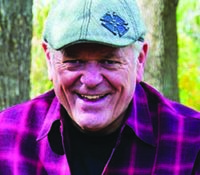By Coach Cary Bayer Many moons ago when I was living in Woodstock, NY, my wife and I had hit a bumpy patch and decided to seek some counseling...
By Coach Cary Bayer
Many moons ago when I was living in Woodstock, NY, my wife and I had hit a bumpy patch and decided to seek some counseling support from Bert Shaw, a wise man who helped many dozens of people put the trains of their lives back on track.
Bert had succeeded in the world and not of it, having risen through creative ranks in the advertising game and then running the Pathwork Center, a spiritual organization about 20 minutes from Woodstock.
One of the things that Bert espoused in his counseling work was the tripartite nature of the human personality broken up into reason, will, and emotion. The idea was that, while every person has each of these qualities active in their lives, one tends to dominate, while the other two are more recessive. Let me give you an example that will help make things clearer, and aid you in discovering which tendency tends to be your most present.
Suppose you have an appointment to play tennis at 9 AM; so three other people are counting on you to show up on time, or else they’d have to wait to get started playing, cutting in on the time that the court is theirs. So you set your alarm for, say, 7:15, giving you an hour and a quarter to wash up, meditate, get dressed, have breakfast and leave for your half-hour drive to the club.
Now suppose you worked out at the gym the night before. Let’s assume for this discussion that you’re driven mostly by emotion. And after the workout you were tired and didn’t feel like taking a shower to clean off all that perspiration then, that you’d put it off for before bedtime. But when bedtime came around you were even more tired and felt even less like showering than you did hours before. So you decide you’ll shower in the morning.
But let’s say you didn’t sleep so well that night, and by the time the alarm rings you feel like you really could use some more time in bed. So you stay under the covers and get out of bed, maybe by 7:30. Now you’re on a shorter time leash to get out by 8:30. So you take that shower, cut your meditation time in half, and quickly run out the door, grabbing a protein bar to eat while driving, instead of sitting down to a nice relaxing breakfast with your partner.
Did you notice that the word ‘feel’ or ‘felt” was used three times in that story?
A writer who chooses his words carefully, I don’t typically repeat a word so often in such a short space, but I deliberately did this time to emphasize that feeling in the moment is what drives the way an Emotion Type behaves.
A Reason Type, on the other hand, would have showered when they got home from the gym, knowing it’s intelligent to shower off sweat right away rather than waiting hours. Such a person might have scheduled the previous day’s workout to even earlier than the Emotion Type did. This person would have been able to get out in the morning easier than the more emotional counterpart.
A Will Type might have even done a gym workout late at night—instead of skipping it entirely—if that person has a commitment to working out on days when they doesn’t play tennis. They would have forced themselves to shower off the workout even if tired and didn’t feel like it. Their will would have driven the action.
It’s not that one type is better than the other; you are who you are and are made up the way you are. But it’s valuable to recognize what drives you, so you can allow the more recessive abilities to show up when useful.
For Emotion Types that means enabling reason and will to exert influences more often.
For those driven by reason, more will and emotion can help create more balance.
Lastly, Will Types can be happier when reason and feelings can express themselves.
Visit www.carybayer.com




























